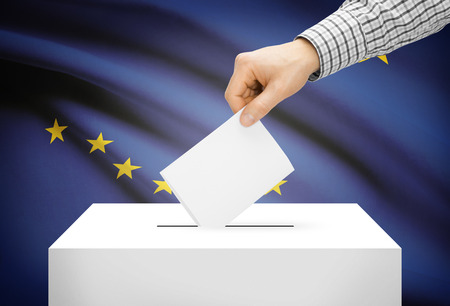MRAK’S ROAD TO THE WHITE HOUSE SERIES CONTINUES
Republican state party leaders in Arizona, Kansas, Nevada, and South Carolina have already decided to skip their party primaries in 2020, since they already have an incumbent candidate.
In Alaska, the GOP Presidential Preference Poll is the method for selecting how delegates’ votes will be apportioned at the Republican Nominating Convention in Charlotte. But it’s not necessarily going to be conducted in 2020.
For some in the party, doing the PPP in 2020 is an unnecessary exercise in the election cycle and takes money and volunteer time away from down-ballot candidates.
For others, the PPP would give them a possible choice to advance some other candidate besides Donald Trump.
The deadline for submitting the state party’s plans to the Republican National Committee is Oct. 1.
FAIRBANKS MEETING
Alaska Republican officers will meet in Fairbanks on Friday and Saturday (Sept. 20-21) for their fall State Central Committee meeting. The decision to conduct a PPP or to skip it in 2020 will be one of the primary agenda items, and attendees can expect both positions to be heard, but a decision is almost certain, considering the looming deadline of Oct. 1.
Alaska Republicans conducted a Presidential Preference Poll in 2016, when numerous Republican candidates were vying for the presidency. Those who qualified for the PPP “caucus ballot” were Ted Cruz, Ben Carson, Marco Rubio, Donald Trump, and John Kasich. Each submitted an application and a check to help defray the cost of running the PPP.

In 2016, a majority of Alaska Republicans taking part in the PPP cast their votes for Ted Cruz:
- Ted Cruz: 36.4 percent
- Donald Trump: 33.5 percent
- Marco Rubio: 15.1 percent
- Ben Carson: 10.9 percent
- John Kasich: 4.1 percent
This time, the Republican National Committee has President Donald Trump to defend as the incumbent. The RNC is not going to support another candidate.
Yet, more than 100 other candidates have filed with the Federal Election Commission to run for president as Republicans in 2020, including Bill Weld, Joe Walsh, and Mark Sanford.
More may jump into the fray, but do any of them have a chance? Would any of them even have the money or desire to get onto the Alaska PPP ballot to try to get a delegate or two?
That’s the question Alaska Republican officers will be asking themselves as they ponder whether to spend precious volunteer hours and funds to conduct what is a massive grassroots exercise that takes place within about five hours in every House district across the state on the same day, just prior to Super Tuesday.
According to Alaska GOP party rules, a presidential candidate must receive a 13 percent of vote of the total statewide vote in order to receive any delegates to the National Convention. Delegates are allocated proportionally.
The PPP is like a caucus, but done by ballot. Rather than move people around a gymnasium in the old caucus method, Republicans come in the door, get checked off a voter registration list to ensure they are Republicans, are handed a ballot that have all the names of the Republican contenders who have qualified for the PPP, and they mark their choice and drop it in the ballot box.
Qualifying for the PPP includes the candidate submitting an application to the party along with a check for the amount determined by the party.
The results of the PPP are binding to the 28 delegates who will be chosen to attend the Republican National Convention in Charlotte, N.C.
TRUMP ADVANTAGE
Trump is polling well with Republicans across the country.
A Monmouth University poll released in August showed 84 percent of Republicans approve of Trump’s job performance. Some 88 percent of Republicans in a Fox News poll approved of his performance.
The last president to lose the nomination of his party for reelection was Franklin Pierce, a Democrat, who lost the support of the Democratic Party during the reelection season of 1856. (Pierce was pro-slavery and his actions led to the Southern secession and the Civil War that followed.)
The Republican Party will select its presidential nominee at the Republican National Convention in Charlotte, N.C., August 24-27, 2020.
